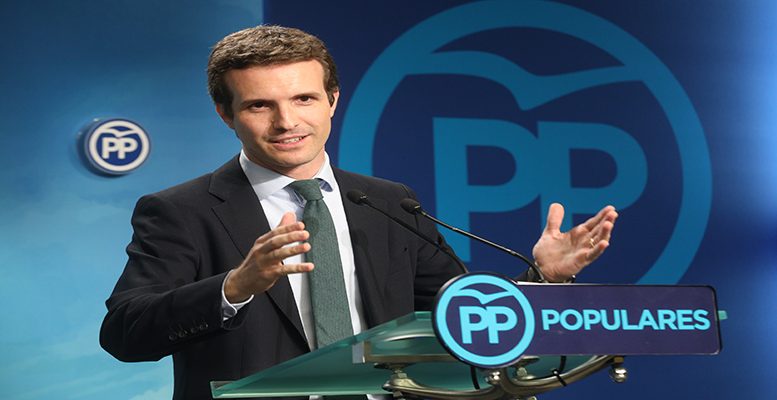Fernando González Urbaneja | Politics is the art of the possible; democracy requires mediation, containment, explanation, persuasion, convincing… None of this characterises Spanish politics, which are sliding towards the opposite, towards the impossible, towards exaggeration, simplification and polarisation. Politics based on brinkmanship (all or nothing) instead of pragmatic possibilism, gradualism, is heading for failure.
The PP requires the PSOE (Casado to Sánchez) with non-negotiable demands to renew the institutions. And the government responds with the same technique: no talk, no call, no negotiation. It’s all or nothing – and I’ll shoot because it’s my turn. The result is deadlock and confrontation. This has nothing to do with the art of the possible, with the restrained and moderate exercise of power.
The damage that this kind of practice does to institutions is severe; at the moment the judiciary is suffering from the infection of mediocre politicians who transfer their incompetence and frustrations to the courts. The government perceives the judges are hostile to it because of the sentences of censure it receives, most of which are well deserved. And the opposition takes its strategies to undermine the government to court. All of these are bad practices. They give some apparent short-term returns but are harmful to everyone, to society as a whole.
There will be no institutional peace and a well-functioning democracy based on the kind of backbiting that ruins mediation and responsible decisions. The multi-sided debate on the minimum wage – within the government, between the government and the social partners, between the social partners – does not contribute to effective decision-making.
Social dialogue is an instrument, a means to achieve far-reaching goals. Dialogue in itself does not mean decisions, it is just a good path towards making them. But when dialogue stalls, decisions cannot be postponed.
The responsibility for setting a minimum wage lies with the government, which proposes it, and with the parliament, which approves or rejects it. If there is agreement between unions and employers, so much the better; but the responsibility lies with the government, which must have clear ideas, a project and explanations. The current debate on whether or not to raise the ceiling and the amount of the increase is academic, rhetorical and sterile. The government should not hide behind third parties but take a decision and explain it. It’s simple, just requiring responsibility and conviction.





